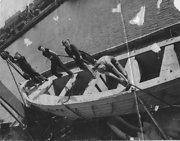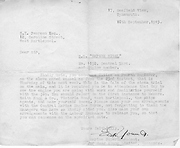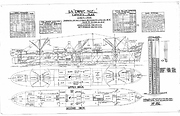 Hartlepool Sports & Leisure
Hartlepool Sports & Leisure
- Cinemas, Theatres & Dance Halls
- Musicians & Bands
- At the Seaside
- Parks & Gardens
- Caravans & Camping
- Sport
 Hartlepool Transport
Hartlepool Transport
- Airfields & Aircraft
- Railways
- Buses & Commercial Vehicles
- Cars & Motorbikes
- The Ferry
- Horse drawn vehicles
 A Potted History Of Hartlepool
A Potted History Of Hartlepool
- Unidentified images
- Sources of information
- Archaeology & Ancient History
- Local Government
- Printed Notices & Papers
- Aerial Photographs
- Events, Visitors & VIPs
 Hartlepool Trade & Industry
Hartlepool Trade & Industry
- Trade Fairs
- Local businesses
- Iron & Steel
- Shops & Shopping
- Fishing industry
- Farming & Rural Landscape
- Pubs, Clubs & Hotels
 Hartlepool Health & Education
Hartlepool Health & Education
- Schools & Colleges
- Hospitals & Workhouses
- Public Health & Utilities
- Ambulance Service
- Police Services
- Fire Services
 Hartlepool People
Hartlepool People
 Hartlepool Places
Hartlepool Places
 Hartlepool at War
Hartlepool at War
 Hartlepool Ships & Shipping
Hartlepool Ships & Shipping

Empire Nigel Voyage History
 Empire Nigel - voyage details
Empire Nigel - voyage details
The Empire Nigel's maiden voyage was from Middlesbrough to Molotovsk, in the White Sea, Russia, with a cargo of tanks, guns and crated planes etc. The ship sailed from Loch Ewe in Convoy JW 54A, on November 15th, 1943 and successfully discharged her cargo.
She sailed again (from Murmansk), on December 22nd, 1943 in Convoy RA 55A and safely arrived back at Loch Ewe on January 1st, 1944.
Having loaded a cargo of war supplies at Salford Docks, Manchester, the Empire Nigel sailed from Loch Ewe on in Convoy JW 57 on February 20th, 1944 and discharged her cargo at Molotovsk, in the White Sea, Russia. The ship was then handed over to the Russians as part of the Lend-Lease Agreement.
Journey details and crew
Arrived |
Departed |
Port |
Ship name |
Crew |
|---|---|---|---|---|
| 15/11/1943 | Loch Ewe | Empire Nigel | ||
| 12/1943 | 22/12/1943 | Murmansk | Empire Nigel | |
| 1/1/1944 | 20/2/1944 | Loch Ewe | Empire Nigel | |
Related items :
 Bristol City (1)
Bristol City (1)
 Created by unknown
Donated by J. Hillier
Created by unknown
Donated by J. HillierThe steamship Bristol City, originally built as the Empire Nigel.
More detail » Bristol City (2)
Bristol City (2)
 Created by unknown
Donated by Mr. Bert Spaldin
Created by unknown
Donated by Mr. Bert SpaldinThe steamship Bristol City, lying alongside at an unknown port. She was originally built as the Empire Nigel.
More detail » Bristol City (3)
Bristol City (3)
 Created by unknown
Donated by Bert Spaldin
Created by unknown
Donated by Bert SpaldinPart of the Bert Spaldin collection
The steamship Bristol City, originally built as the Empire Nigel.
More detail » Four women in a lifeboat
Four women in a lifeboat
 Donated by Hartlepool Museum Service
Donated by Hartlepool Museum ServiceFour women in a lifeboat aboard a ship. Ship believed to be The Empire Nigel.
More detail » Joining Ship - 1943
Joining Ship - 1943
 Donated by Mr. Steve Pearson
Donated by Mr. Steve PearsonDated 1943
Steve Pearson's letter to join the Gray-built ship Empire Nigel as Fourth Engineer, in September 1943.
More detail » Ships of the Splosna Plovba fleet
Ships of the Splosna Plovba fleet
Compiled by Robert Brozina.
The first ship built in the shipyard W. Gray & Co., West Hartlepool in the fleet of Splošna Plovba was Zelengora (ex-Empire Nigel). She was purchased in 1956 two years after the creation of the Splošna Plovba company . By 1962 she mainly sailed on tramping voyages and then was incorporated into a new line of Splošna Plovba on the Adriatic - Mediterranean - Western coast of Africa run. It sailed between Koper - Trieste - Venice– Rijeka - Naples - Genoa - Marseilles - Barcelona - Valencia - Casablanca-Dakar - Conakry - Abidjan - Takoradi - Tema - Lagos - Douala (optional), Libreville (optional), Port Gentil, (optional), Matadi (optional), Lobito and Luanda, return trips Takoradi, Dakar, Casablanca (optional), Malaga (optional), Barcelona (optional), Genoa (optional), Ancona (optional), Venice, Trieste, Koper and Rijeka. Zelengora was sailing in fleet Splošna Plovba until 1971 when she was sold to the CIA de Navigation SA Portland, Panama City. She was broken up in Sveti Kajo near Split, on July 6, 1972. Interestingly, Zelengora was the last steam powered ship in the Splošna Plovba fleet.
The Bočna (ex-Rose of Lancester), was purchased in 1965. She was employed on the West Africa Line with the Zelegora and Naprijed, and was the first vessel lost due to a maritime accident. On December 24th, 1977, the pipes in the boilers were destroyed to such an extent that repairs were unreasonable and the vessel was proclaimed a constructive total loss. She was towed from the port of Matadi (in the then Zaire) to Sveti Kajo and scrapped on March 23rd, 1978. She was the only turbine powered ship in the fleet.
Naprijed (ex-Empire Labuan), was purchased in November 1966, and employed on West Africa Line with the ships Zelengora and Bočna. She was broken up in Sveti Kajo on May. 5th, 1969.
Ships from the Adriatic and Mediterranean ports were transporting general cargo to Africa returning with tropical wood.
 Capacity Plan of the Empire Nigel
Capacity Plan of the Empire Nigel
 Donated by Hartlepool Museum Service
Donated by Hartlepool Museum ServiceDated 1943
A Capacity Plan for the Empire Nigel, held by Hartlepool Museum Service.
More detail » Zelengora
Zelengora
 Created by Splosna Plovba
Donated by Robert Brozina
Created by Splosna Plovba
Donated by Robert BrozinaThe Splosna Plovba steamship Zelengora (ex-Empire Nigel), at Venice.
More detail »



